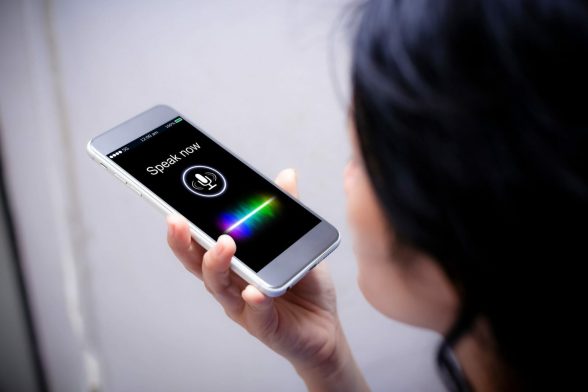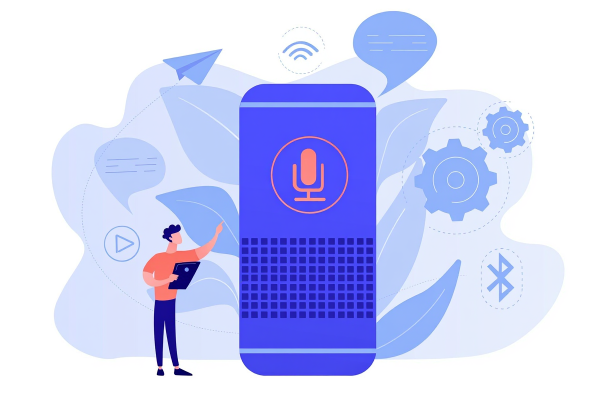- Resources
- What is Conversational IVR? And how can it improve customer service?
What is Conversational IVR? And how can it improve customer service?

If your business focus is to increase growth and value for customers, it’s important to meet and exceed their expectations. Yet, most businesses use outdated IVR systems that are not user-friendly.
But, it doesn’t have to be that way. Technology has made long strides in the last decade to make intelligent automated phone support a reality. Conversational Interactive Voice Response (IVR) is one way to transform how businesses conduct customer service for the better.
What is Conversational IVR?
Conversational IVR uses voice/speech as input to interact with the IVR system, in contrast with a traditional IVR that uses touch-tone (DTMF input.) The result is a human-like and friendly experience for the caller.
Most callers reach for phone support expecting an agent to answer the call, and it can feel disconcerting when they’re welcomed by an IVR. But if the IVR system is welcoming and easy-to-use, it can create a positive customer experience for the brand.
How Conversational IVR works and its types
Conversational IVR is of two forms, depending on whether artificial intelligence (AI) is involved along with Natural Language Processing (NLP).
The simpler form of Conversational IVR uses voice/speech recognition in IVR. This technology allows the caller to respond and navigate through a menu using voice commands. When done right, it reduces the caller’s frustration in using an IVR— they can now speak into the IVRS with a ‘yes’ or ‘no’ instead of shuffling the phone from their ear to hand to press the DTMF.
The advanced version of Conversational IVR combines AI and NLP. This technology is designed to learn and evolve continuously which helps establish the intent of the call accurately. Picture a caller saying ‘check refund status’ and being instantly given the status instead of navigating via voice recognition and DTMF tones. That’s one example of how AI can be used to create a positive customer experience.
When is Conversational IVR right for your business?
Furthermore, here are some scenarios where using conversational IVR is a good proposition for your business.
Based on the use case
Surveys and feedback: Conversational IVR allows for a natural flow of answers, which is crucial when a customer is providing feedback or answering surveys. When powered by AI, it provides a good experience for the customer because it makes them feel that their feedback is heard, as opposed to manual or email surveys.
Lead qualification: Conversational IVR is a good pre-qualifying system for leads. Similar to the qualifying questions on website forms or chatbots, a customer is qualified and the call is directed to a qualified sales agent right away by listening to their response. This seamless transition improves CX.
Based on the industry
Banking: Voice automation can be used in banking and financial services to make outbound collection calls. Call volumes in contact centers are staggeringly high despite the efforts to offer omnichannel support. Conversational IVR helps reduce agents’ workload, enhance their experience, thereby improving their efficiency to work on other productive efforts like upselling, cross-selling, etc.
Retail: Another industry where Conversational IVR can shine through is retail, where there are repetitive inquiries about returns, exchanges, product availability, and refunds.
Human Resources: Similar to the lead qualification use case, Conversational IVR is used by HR for candidate screening. Clients using this solution have reported that their candidate reach out has become 10 times faster, and also resulting in a 40% reduction in cost per hire.
Conversational IVR is typically used to handle inquiries and for problem resolution. Leverage it when:
- Your IVR menu is too long. The complex navigation and routing frustrate the callers, making them abandon the call midway.
- You receive/make large volumes of repetitive calls (especially in industries like travel or IT helpdesk) that can be automated.
- You want to provide hands-on support all the time without involving the customer service agents.
Benefits of using Conversational IVR for your customer service
Boosts NPS: Conversational IVR helps maintain high First Call Resolution (FCR) rates— a key performance indicator of customer satisfaction and loyalty— thereby improving the Net Promoter Score (NPS).
Reduces costs: Customer-friendly voice automation reduces the number of agents required to handle the calls, thereby reducing the associated manpower costs. On the same note, agents can handle only a limited number of calls in a day, whereas automation can lead to unlimited volume handling.
Provides answers faster: A conversational IVRS is smart because it is continuously learning. When the system doesn’t understand the customer intent, it transfers the call to a live agent without friction.
Delights customers: NLP allows the customer to speak in the words of their choice. This provides an inclusive experience for the caller. It also makes intent recognition easier and provides a resolution seamlessly.
Supports self-service: Callers prefer an interactive self-service option that gets them quick and accurate responses or a swift resolution. Conversational IVR helps boost customer engagement and loyalty.
But every rose has its thorn— Here is when you don’t need Conversational IVR:
- Conversational IVR is best avoided in time-critical industries like healthcare or disaster management, where the position of a live agent is irreplaceable.
- Text-to-speech (TTS) software used in Conversational IVR is inadequate where personalization is key— too much IVR TTS can ruin the caller experience.
- Simple interactions such as “press 1 to reach Sales…” doesn’t require the sophistication of Conversational IVR. On the other hand, if your customer calls in to get a retail store address or a hotel location, or address for a delivery pick-up point— conversational IVR is a great use case.
- AI is only as good as the data it is trained on, any errors will lead to customer dissatisfaction and end up doing more harm than good. Therefore, Conversational IVR is not recommended for light use cases.
Rephrase the conversation
Conversational IVR is a great self-service system that boosts your brand perception by delivering consistent and quality service every single time. After all, isn’t that what every business strives for?
Are you looking for a conversational support system that is welcoming and instinctive? Check out the best-in-class IVRS by Ozonetel.







